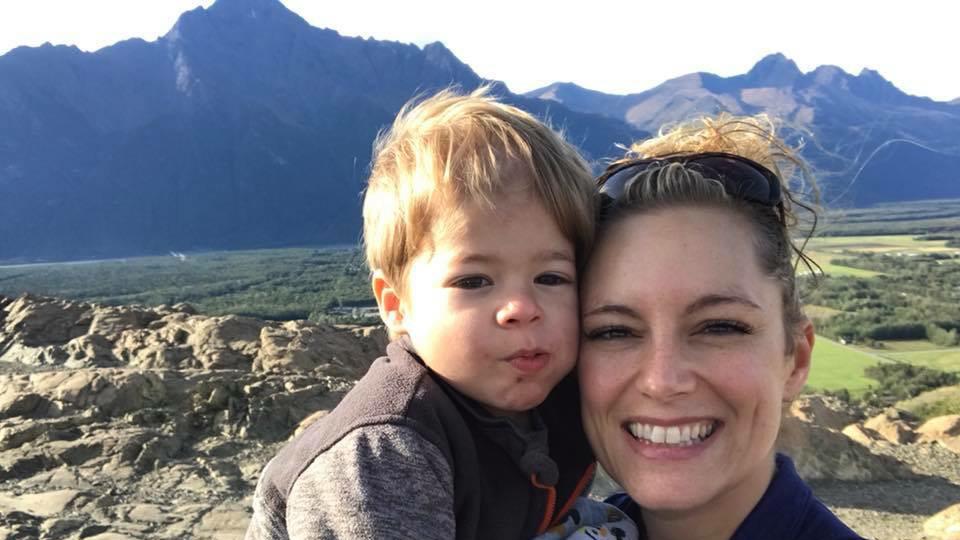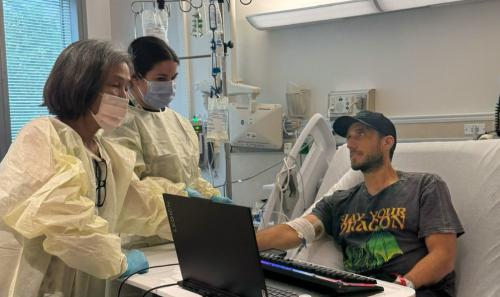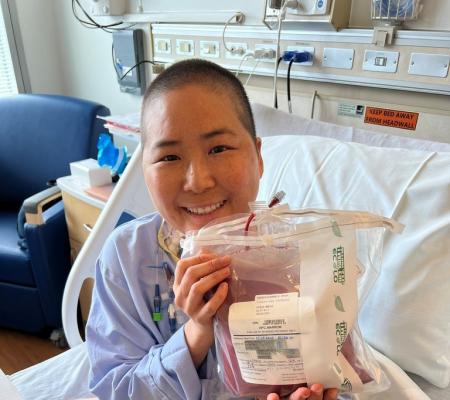
-
Understanding primary immunodeficiency (PI)

Understanding PI
The more you understand about primary immunodeficiency (PI), the better you can live with the disease or support others in your life with PI. Learn more about PI, including the various diagnoses and treatment options.
-
Living with PI
-
Addressing mental health
-
Explaining your diagnosis
- General care
- Get support
- For parents and guardians
-
Managing workplace issues
- Navigating insurance
-
Traveling safely

Living with PI
Living with primary immunodeficiency (PI) can be challenging, but you’re not alone—many people with PI lead full and active lives. With the right support and resources, you can, too.
-
Addressing mental health
-
Get involved

Get involved
Be a hero for those with PI. Change lives by promoting primary immunodeficiency (PI) awareness and taking action in your community through advocacy, donating, volunteering, or fundraising.
-
Advancing research and clinical care
-
Research Grant Program
-
Consulting immunologist
-
Diagnosing PI
-
Getting prior authorization
-
Clinician education
-
Survey research
-
Participating in clinical trials

Advancing research and clinical care
Whether you’re a clinician, researcher, or an individual with primary immunodeficiency (PI), IDF has resources to help you advance the field. Get details on surveys, grants, and clinical trials.
-
Research Grant Program

For many families confronting chronic granulomatous disease (CGD), the road to diagnosis can be a long and winding one. For Carly Wiehe and her son Brandon, of Wasilla, Alaska, it was harrowing right from the start.
Within days of being born, Brandon developed a yeast infection that did not respond to antibiotic treatment. His white blood cell count was high, he stopped feeding, and he had a persistently high fever. Within those first three precarious weeks, his vital signs continued to deteriorate, and his doctors said that it may be time to start saying goodbye.
Remarkably, Brandon survived, under the care of dedicated healthcare professionals driven by a perceptive physician and a determined mom who pushed for a diagnosis.
“I needed to find a pediatrician quickly, and I happened to pick one that had the only other patient with CGD that I know of in Alaska,” said Carly, referring to Dr. Jeff Brand, a pediatric specialist based in Anchorage. “He said it looks like my son may have something called CGD. He prescribed an anti-fungal medication, and Brandon responded immediately and within days I could take him home.”
Brandon is now an energetic four-year-old, who loves attending preschool, playing outdoors, and hiking through the mountains with his mom. She just pops him into her backpack carrier, and off they go. He currently takes standard prophylactic antibiotics and antifungal treatments each day along with interferon gamma; although, given how spunky he is, she admits that administering his meds is not always easy.
“Thankfully, I know some Jiu-Jitsu because I have to wrestle with him to take his medicine,” jokes Carly, who actually does practice the martial art as a way to release stress in her roles both as a mom and as a forensic scientist. “I fly around Alaska examining crime scenes in the most remote parts of the state,” she adds. “There are times when it helps to walk into a situation with confidence, knowing how to protect yourself if you have to.”
Carly’s knowledge of science has also informed her outlook on CGD. Given all the information out there, some of which can be conflicting or confusing, she said her background has helped her forge a path.
“I trust nothing until I do my research,” said Carly. “When I look at a study, I have to know how many people were in it, what the placebo outcomes were, etc. I am skeptical until I see all of the parameters.”
To that end, Carly is currently researching bone marrow transplant, or hematopoietic stem cell transplantation (HSCT), for Brandon. For example, they’ve recently visited Seattle Children’s Hospital and met with Dr. Troy Torgerson, an expert in immunology and CGD, who is also a member of the Immune Deficiency Foundation’s (IDF) Medical Advisory Committee. After meeting with the team there, Carly has decided to admit Brandon for a transplant in April of 2019.
Until then, she and Brandon will continue enjoying their hikes to the top of the majestic mountains of Alaska. These moments provide a sense of strength and inspire her to face the challenges ahead.
“It’s so beautiful up there,” said Carly. “It always puts me in a good mood, no matter how difficult it was to reach the top.” Perhaps this serves as a metaphor for the CGD journey as well.
What advice does Carly have for parents of patients with CGD to maintain a positive and even joyful attitude?
“You’re always stronger than you think you are, but you can’t take care of your child unless you’re taking care of yourself, and that means, eating well, sleeping well, and exercising,” said Carly. “It may feel at times like I am being selfish, but if I am happy, Brandon feeds off that energy, and he’s happy.”
Well said, Carly! Thank you for sharing your story, and from all of us at IDF, we are here for you, and we will be following your CGD journey as you move forward.
Related resources

Man with X-linked hyper IgM first-ever to receive novel gene therapy

Pharmacist with CVID receives bone marrow transplant

Undiagnosed: Reuben & Sherri Johnson on CGD, chronic illness, and the fight for healthcare
Sign up for updates from IDF
Receive news and helpful resources to your cell phone or inbox. You can change or cancel your subscription at any time.





The Immune Deficiency Foundation improves the diagnosis, treatment, and quality of life for every person affected by primary immunodeficiency.
We foster a community that is connected, engaged, and empowered through advocacy, education, and research.
Combined Charity Campaign | CFC# 66309

